IEEE Std 1800-2012 Front cover
Title page
Notice to users
Laws and regulations
Copyrights
Updating of IEEE documents
Errata
Patents
Participants
Introduction
Contents
List of figures
List of tables
List of syntax excerpts
Part One: Design and Verification Constructs
Important notice
1. Overview
1.1 Scope
1.2 Purpose
1.3 Content summary
1.4 Special terms
1.5 Conventions used in this standard
1.6 Syntactic description
1.7 Use of color in this standard
1.8 Contents of this standard
1.9 Deprecated clauses
1.10 Examples
1.11 Prerequisites
2. Normative references
3. Design and verification building blocks
3.1 General
3.2 Design elements
3.3 Modules
3.4 Programs
3.5 Interfaces
3.6 Checkers
3.7 Primitives
3.8 Subroutines
3.9 Packages
3.10 Configurations
3.11 Overview of hierarchy
3.12 Compilation and elaboration
3.13 Name spaces
3.14 Simulation time units and precision
4. Scheduling semantics
4.1 General
4.2 Execution of a hardware model and its verification environment
4.3 Event simulation
4.4 Stratified event scheduler
4.5 SystemVerilog simulation reference algorithm
4.6 Determinism
4.7 Nondeterminism
4.8 Race conditions
4.9 Scheduling implication of assignments
4.10 PLI callback control points
5. Lexical conventions
5.1 General
5.2 Lexical tokens
5.3 White space
5.4 Comments
5.5 Operators
5.6 Identifiers, keywords, and system names
5.7 Numbers
5.8 Time literals
5.9 String literals
5.10 Structure literals
5.11 Array literals
5.12 Attributes
5.13 Built-in methods
6. Data types
6.1 General
6.2 Data types and data objects
6.3 Value set
6.4 Singular and aggregate types
6.5 Nets and variables
6.6 Net types
6.7 Net declarations
6.8 Variable declarations
6.9 Vector declarations
6.10 Implicit declarations
6.11 Integer data types
6.12 Real, shortreal, and realtime data types
6.13 Void data type
6.14 Chandle data type
6.15 Class
6.16 String data type
6.17 Event data type
6.18 User-defined types
6.19 Enumerations
6.20 Constants
6.21 Scope and lifetime
6.22 Type compatibility
6.23 Type operator
6.24 Casting
6.25 Parameterized data types
7. Aggregate data types
7.1 General
7.2 Structures
7.3 Unions
7.4 Packed and unpacked arrays
7.5 Dynamic arrays
7.6 Array assignments
7.7 Arrays as arguments to subroutines
7.8 Associative arrays
7.9 Associative array methods
7.10 Queues
7.11 Array querying functions
7.12 Array manipulation methods
8. Classes
8.1 General
8.2 Overview
8.3 Syntax
8.4 Objects (class instance)
8.5 Object properties and object parameter data
8.6 Object methods
8.7 Constructors
8.8 Typed constructor calls
8.9 Static class properties
8.10 Static methods
8.11 This
8.12 Assignment, renaming, and copying
8.13 Inheritance and subclasses
8.14 Overridden members
8.15 Super
8.16 Casting
8.17 Chaining constructors
8.18 Data hiding and encapsulation
8.19 Constant class properties
8.20 Virtual methods
8.21 Abstract classes and pure virtual methods
8.22 Polymorphism: dynamic method lookup
8.23 Class scope resolution operator ::
8.24 Out-of-block declarations
8.25 Parameterized classes
8.26 Interface classes
8.27 Typedef class
8.28 Classes and structures
8.29 Memory management
9. Processes
9.1 General
9.2 Structured procedures
9.3 Block statements
9.4 Procedural timing controls
9.5 Process execution threads
9.6 Process control
9.7 Fine-grain process control
10. Assignment statements
10.1 General
10.2 Overview
10.3 Continuous assignments
10.4 Procedural assignments
10.5 Variable declaration assignment (variable initialization)
10.6 Procedural continuous assignments
10.7 Assignment extension and truncation
10.8 Assignment-like contexts
10.9 Assignment patterns
10.10 Unpacked array concatenation
10.11 Net aliasing
11. Operators and expressions
11.1 General
11.2 Overview
11.3 Operators
11.4 Operator descriptions
11.5 Operands
11.6 Expression bit lengths
11.7 Signed expressions
11.8 Expression evaluation rules
11.9 Tagged union expressions and member access
11.10 String literal expressions
11.11 Operator overloading
11.12 Minimum, typical, and maximum delay expressions
11.13 Let construct
12. Procedural programming statements
12.1 General
12.2 Overview
12.3 Syntax
12.4 Conditional if–else statement
12.5 Case statement
12.6 Pattern matching conditional statements
12.7 Loop statements
12.8 Jump statements
13. Tasks and functions (subroutines)
13.1 General
13.2 Overview
13.3 Tasks
13.4 Functions
13.5 Subroutine calls and argument passing
13.6 Import and export functions
13.7 Task and function names
13.8 Parameterized tasks and functions
14. Clocking blocks
14.1 General
14.2 Overview
14.3 Clocking block declaration
14.4 Input and output skews
14.5 Hierarchical expressions
14.6 Signals in multiple clocking blocks
14.7 Clocking block scope and lifetime
14.8 Multiple clocking blocks example
14.9 Interfaces and clocking blocks
14.10 Clocking block events
14.11 Cycle delay: ##
14.12 Default clocking
14.13 Input sampling
14.14 Global clocking
14.15 Synchronous events
14.16 Synchronous drives
15. Interprocess synchronization and communication
15.1 General
15.2 Overview
15.3 Semaphores
15.4 Mailboxes
15.5 Named events
16. Assertions
16.1 General
16.2 Overview
16.3 Immediate assertions
16.4 Deferred assertions
16.5 Concurrent assertions overview
16.6 Boolean expressions
16.7 Sequences
16.8 Declaring sequences
16.9 Sequence operations
16.10 Local variables
16.11 Calling subroutines on match of a sequence
16.12 Declaring properties
16.13 Multiclock support
16.14 Concurrent assertions
16.15 Disable iff resolution
16.16 Clock resolution
16.17 Expect statement
16.18 Clocking blocks and concurrent assertions
17. Checkers
17.1 Overview
17.2 Checker declaration
17.3 Checker instantiation
17.4 Context inference
17.5 Checker procedures
17.6 Covergroups in checkers
17.7 Checker variables
17.8 Functions in checkers
17.9 Complex checker example
18. Constrained random value generation
18.1 General
18.2 Overview
18.3 Concepts and usage
18.4 Random variables
18.5 Constraint blocks
18.6 Randomization methods
18.7 In-line constraints—randomize() with
18.8 Disabling random variables with rand_mode()
18.9 Controlling constraints with constraint_mode()
18.10 Dynamic constraint modification
18.11 In-line random variable control
18.12 Randomization of scope variables—std::randomize()
18.13 Random number system functions and methods
18.14 Random stability
18.15 Manually seeding randomize
18.16 Random weighted case—randcase
18.17 Random sequence generation—randsequence
19. Functional coverage
19.1 General
19.2 Overview
19.3 Defining the coverage model: covergroup
19.4 Using covergroup in classes
19.5 Defining coverage points
19.6 Defining cross coverage
19.7 Specifying coverage options
19.8 Predefined coverage methods
19.9 Predefined coverage system tasks and system functions
19.10 Organization of option and type_option members
19.11 Coverage computation
20. Utility system tasks and system functions
20.1 General
20.2 Simulation control system tasks
20.3 Simulation time system functions
20.4 Timescale system tasks
20.5 Conversion functions
20.6 Data query functions
20.7 Array querying functions
20.8 Math functions
20.9 Bit vector system functions
20.10 Severity tasks
20.11 Elaboration system tasks
20.12 Assertion control system tasks
20.13 Sampled value system functions
20.14 Coverage system functions
20.15 Probabilistic distribution functions
20.16 Stochastic analysis tasks and functions
20.17 Programmable logic array modeling system tasks
20.18 Miscellaneous tasks and functions
21. Input/output system tasks and system functions
21.1 General
21.2 Display system tasks
21.3 File input/output system tasks and system functions
21.4 Loading memory array data from a file
21.5 Writing memory array data to a file
21.6 Command line input
21.7 Value change dump (VCD) files
22. Compiler directives
22.1 General
22.2 Overview
22.3 `resetall
22.4 `include
22.5 `define, `undef, and `undefineall
22.6 `ifdef, `else, `elsif, `endif, `ifndef
22.7 `timescale
22.8 `default_nettype
22.9 `unconnected_drive and `nounconnected_drive
22.10 `celldefine and `endcelldefine
22.11 `pragma
22.12 `line
22.13 `__FILE__ and `__LINE__
22.14 `begin_keywords, `end_keywords
Part Two: Hierarchy Constructs
23. Modules and hierarchy
23.1 General
23.2 Module definitions
23.3 Module instances (hierarchy)
23.4 Nested modules
23.5 Extern modules
23.6 Hierarchical names
23.7 Member selects and hierarchical names
23.8 Upwards name referencing
23.9 Scope rules
23.10 Overriding module parameters
23.11 Binding auxiliary code to scopes or instances
24. Programs
24.1 General
24.2 Overview
24.3 The program construct
24.4 Eliminating testbench races
24.5 Blocking tasks in cycle/event mode
24.6 Programwide space and anonymous programs
24.7 Program control tasks
25. Interfaces
25.1 General
25.2 Overview
25.3 Interface syntax
25.4 Ports in interfaces
25.5 Modports
25.6 Interfaces and specify blocks
25.7 Tasks and functions in interfaces
25.8 Parameterized interfaces
25.9 Virtual interfaces
25.10 Access to interface objects
26. Packages
26.1 General
26.2 Package declarations
26.3 Referencing data in packages
26.4 Using packages in module headers
26.5 Search order rules
26.6 Exporting imported names from packages
26.7 The std built-in package
27. Generate constructs
27.1 General
27.2 Overview
27.3 Generate construct syntax
27.4 Loop generate constructs
27.5 Conditional generate constructs
27.6 External names for unnamed generate blocks
28. Gate-level and switch-level modeling
28.1 General
28.2 Overview
28.3 Gate and switch declaration syntax
28.4 and, nand, nor, or, xor, and xnor gates
28.5 buf and not gates
28.6 bufif1, bufif0, notif1, and notif0 gates
28.7 MOS switches
28.8 Bidirectional pass switches
28.9 CMOS switches
28.10 pullup and pulldown sources
28.11 Logic strength modeling
28.12 Strengths and values of combined signals
28.13 Strength reduction by nonresistive devices
28.14 Strength reduction by resistive devices
28.15 Strengths of net types
28.16 Gate and net delays
29. User-defined primitives
29.1 General
29.2 Overview
29.3 UDP definition
29.4 Combinational UDPs
29.5 Level-sensitive sequential UDPs
29.6 Edge-sensitive sequential UDPs
29.7 Sequential UDP initialization
29.8 UDP instances
29.9 Mixing level-sensitive and edge-sensitive descriptions
29.10 Level-sensitive dominance
30. Specify blocks
30.1 General
30.2 Overview
30.3 Specify block declaration
30.4 Module path declarations
30.5 Assigning delays to module paths
30.6 Mixing module path delays and distributed delays
30.7 Detailed control of pulse filtering behavior
31. Timing checks
31.1 General
31.2 Overview
31.3 Timing checks using a stability window
31.4 Timing checks for clock and control signals
31.5 Edge-control specifiers
31.6 Notifiers: user-defined responses to timing violations
31.7 Enabling timing checks with conditioned events
31.8 Vector signals in timing checks
31.9 Negative timing checks
32. Backannotation using the standard delay format
32.1 General
32.2 Overview
32.3 The SDF annotator
32.4 Mapping of SDF constructs to SystemVerilog
32.5 Multiple annotations
32.6 Multiple SDF files
32.7 Pulse limit annotation
32.8 SDF to SystemVerilog delay value mapping
32.9 Loading timing data from an SDF file
33. Configuring the contents of a design
33.1 General
33.2 Overview
33.3 Libraries
33.4 Configurations
33.5 Using libraries and configs
33.6 Configuration examples
33.7 Displaying library binding information
33.8 Library mapping examples
34. Protected envelopes
34.1 General
34.2 Overview
34.3 Processing protected envelopes
34.4 Protect pragma directives
34.5 Protect pragma keywords
Part Three: Application Programming Interfaces
35. Direct programming interface
35.1 General
35.2 Overview
35.3 Two layers of DPI
35.4 Global name space of imported and exported functions
35.5 Imported tasks and functions
35.6 Calling imported functions
35.7 Exported functions
35.8 Exported tasks
35.9 Disabling DPI tasks and functions
36. Programming language interface (PLI/VPI) overview
36.1 General
36.2 PLI purpose and history
36.3 User-defined system task and system function names
36.4 User-defined system task and system function arguments
36.5 User-defined system task and system function types
36.6 User-supplied PLI applications
36.7 PLI include files
36.8 VPI sizetf, compiletf, and calltf routines
36.9 PLI mechanism
36.10 VPI access to SystemVerilog objects and simulation objects
36.11 List of VPI routines by functional category
36.12 VPI backwards compatibility features and limitations
37. VPI object model diagrams
37.1 General
37.2 VPI Handles
37.3 VPI object classifications
37.4 Key to data model diagrams
37.5 Module
37.6 Interface
37.7 Modport
37.8 Interface task or function declaration
37.9 Program
37.10 Instance
37.11 Instance arrays
37.12 Scope
37.13 IO declaration
37.14 Ports
37.15 Reference objects
37.16 Nets
37.17 Variables
37.18 Packed array variables
37.19 Variable select
37.20 Memory
37.21 Variable drivers and loads
37.22 Object Range
37.23 Typespec
37.24 Structures and unions
37.25 Named events
37.26 Parameter, spec param, def param, param assign
37.27 Virtual interface
37.28 Interface typespec
37.29 Class definition
37.30 Class typespec
37.31 Class variables and class objects
37.32 Constraint, constraint ordering, distribution
37.33 Primitive, prim term
37.34 UDP
37.35 Intermodule path
37.36 Constraint expression
37.37 Module path, path term
37.38 Timing check
37.39 Task and function declaration
37.40 Task and function call
37.41 Frames
37.42 Threads
37.43 Delay terminals
37.44 Net drivers and loads
37.45 Continuous assignment
37.46 Clocking block
37.47 Assertion
37.48 Concurrent assertions
37.49 Property declaration
37.50 Property specification
37.51 Sequence declaration
37.52 Sequence expression
37.53 Immediate assertions
37.54 Multiclock sequence expression
37.55 Let
37.56 Simple expressions
37.57 Expressions
37.58 Atomic statement
37.59 Dynamic prefixing
37.60 Event statement
37.61 Process
37.62 Assignment
37.63 Event control
37.64 While, repeat
37.65 Waits
37.66 Delay control
37.67 Repeat control
37.68 Forever
37.69 If, if–else
37.70 Case, pattern
37.71 Expect
37.72 For
37.73 Do-while, foreach
37.74 Alias statement
37.75 Disables
37.76 Return statement
37.77 Assign statement, deassign, force, release
37.78 Callback
37.79 Time queue
37.80 Active time format
37.81 Attribute
37.82 Iterator
37.83 Generates
38. VPI routine definitions
38.1 General
38.2 vpi_chk_error()
38.3 vpi_compare_objects()
38.4 vpi_control()
38.5 vpi_flush()
38.6 vpi_get()
38.7 vpi_get64()
38.8 vpi_get_cb_info()
38.9 vpi_get_data()
38.10 vpi_get_delays()
38.11 vpi_get_str()
38.12 vpi_get_systf_info()
38.13 vpi_get_time()
38.14 vpi_get_userdata()
38.15 vpi_get_value()
38.16 vpi_get_value_array()
38.17 vpi_get_vlog_info()
38.18 vpi_handle()
38.19 vpi_handle_by_index()
38.20 vpi_handle_by_multi_index()
38.21 vpi_handle_by_name()
38.22 vpi_handle_multi()
38.23 vpi_iterate()
38.24 vpi_mcd_close()
38.25 vpi_mcd_flush()
38.26 vpi_mcd_name()
38.27 vpi_mcd_open()
38.28 vpi_mcd_printf()
38.29 vpi_mcd_vprintf()
38.30 vpi_printf()
38.31 vpi_put_data()
38.32 vpi_put_delays()
38.33 vpi_put_userdata()
38.34 vpi_put_value()
38.35 vpi_put_value_array()
38.36 vpi_register_cb()
38.37 vpi_register_systf()
38.38 vpi_release_handle()
38.39 vpi_remove_cb()
38.40 vpi_scan()
38.41 vpi_vprintf()
39. Assertion API
39.1 General
39.2 Overview
39.3 Static information
39.4 Dynamic information
39.5 Control functions
40. Code coverage control and API
40.1 General
40.2 Overview
40.3 SystemVerilog real-time coverage access
40.4 FSM recognition
40.5 VPI coverage extensions
41. Data read API
Part Four: Annexes
Annex A (normative) Formal syntax
A.1 Source text
A.2 Declarations
A.3 Primitive instances
A.4 Instantiations
A.5 UDP declaration and instantiation
A.6 Behavioral statements
A.7 Specify section
A.8 Expressions
A.9 General
A.10 Footnotes (normative)
Annex B (normative) Keywords
Annex C (normative) Deprecation
C.1 General
C.2 Constructs that have been deprecated
C.3 Accellera SystemVerilog 3.1a-compatible access to packed data
C.4 Constructs identified for deprecation
Annex D (informative) Optional system tasks and system functions
D.1 General
D.2 $countdrivers
D.3 $getpattern
D.4 $input
D.5 $key and $nokey
D.6 $list
D.7 $log and $nolog
D.8 $reset, $reset_count, and $reset_value
D.9 $save, $restart, and $incsave
D.10 $scale
D.11 $scope
D.12 $showscopes
D.13 $showvars
D.14 $sreadmemb and $sreadmemh
Annex E (informative) Optional compiler directives
E.1 General
E.2 `default_decay_time
E.3 `default_trireg_strength
E.4 `delay_mode_distributed
E.5 `delay_mode_path
E.6 `delay_mode_unit
E.7 `delay_mode_zero
Annex F (normative) Formal semantics of concurrent assertions
F.1 General
F.2 Overview
F.3 Abstract syntax
F.4 Rewriting algorithms
F.5 Semantics
F.6 Extended expressions
F.7 Recursive properties
Annex G (normative) Std package
G.1 General
G.2 Overview
G.3 Semaphore
G.4 Mailbox
G.5 Randomize
G.6 Process
Annex H (normative) DPI C layer
H.1 General
H.2 Overview
H.3 Naming conventions
H.4 Portability
H.5 svdpi.h include file
H.6 Semantic constraints
H.7 Data types
H.8 Argument passing modes
H.9 Context tasks and functions
H.10 Include files
H.11 Arrays
H.12 Open arrays
H.13 SV3.1a-compatible access to packed data (deprecated functionality)
Annex I (normative) svdpi.h
I.1 General
I.2 Overview
I.3 Source code
Annex J (normative) Inclusion of foreign language code
J.1 General
J.2 Overview
J.3 Location independence
J.4 Object code inclusion
Annex K (normative) vpi_user.h
K.1 General
K.2 Source code
Annex L (normative) vpi_compatibility.h
L.1 General
L.2 Source code
Annex M (normative) sv_vpi_user.h
M.1 General
M.2 Source code
Annex N (normative) Algorithm for probabilistic distribution functions
N.1 General
N.2 Source code
Annex O (informative) Encryption/decryption flow
O.1 General
O.2 Overview
O.3 Tool vendor secret key encryption system
O.4 IP author secret key encryption system
O.5 Digital envelopes
Annex P (informative) Glossary
Annex Q (informative) Bibliography
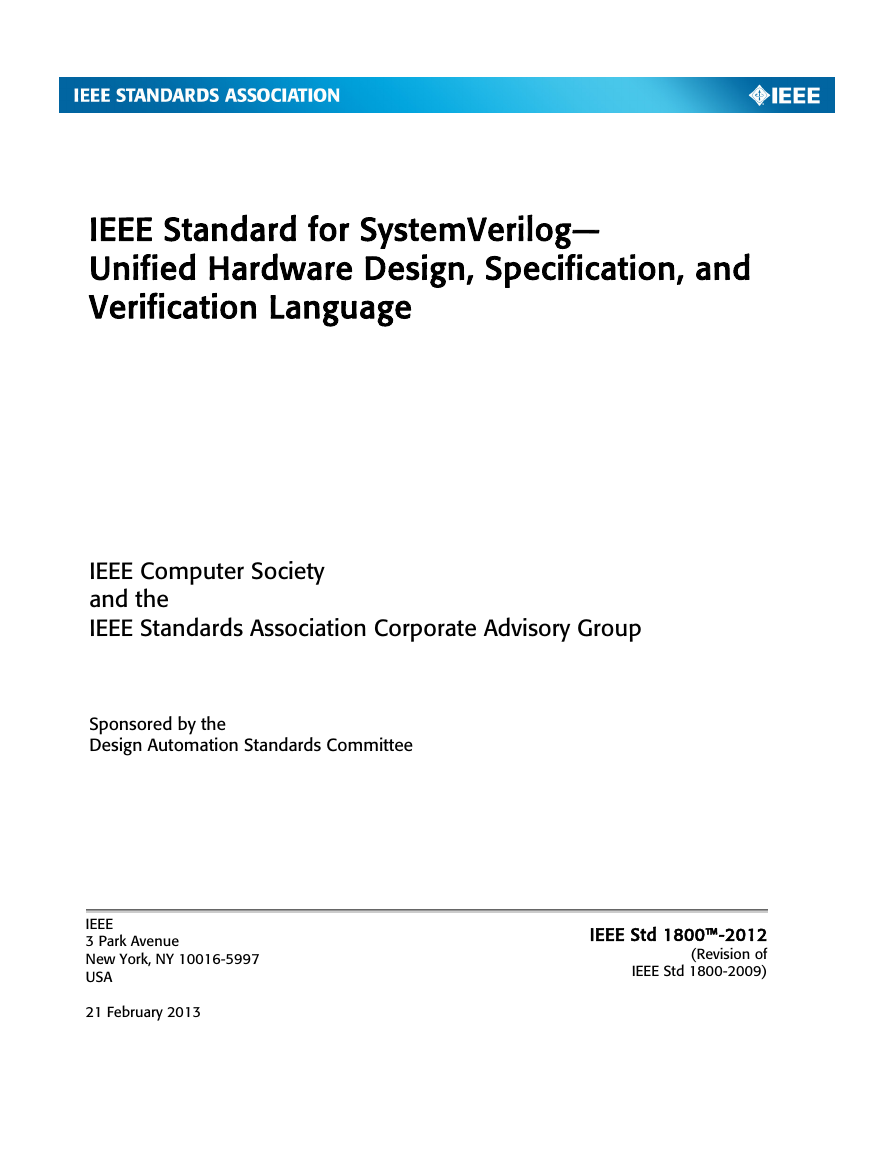

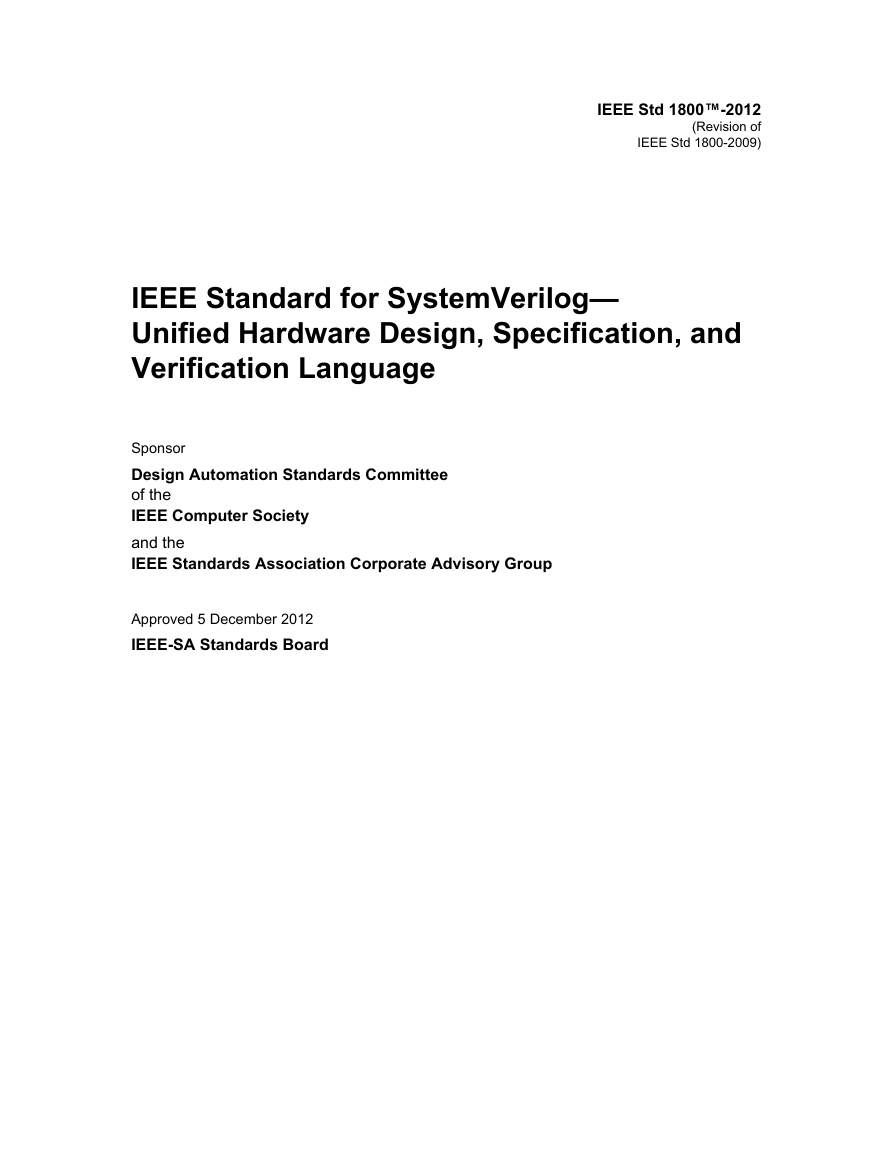
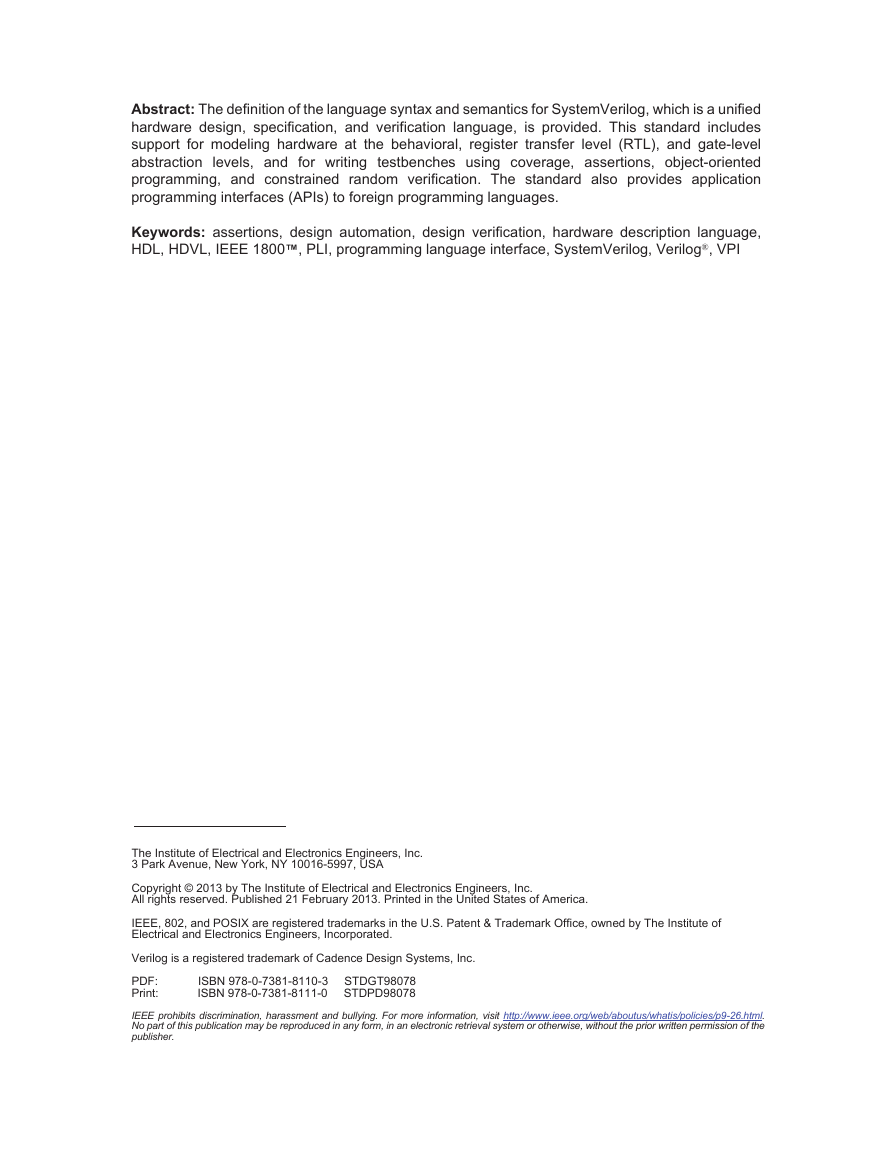
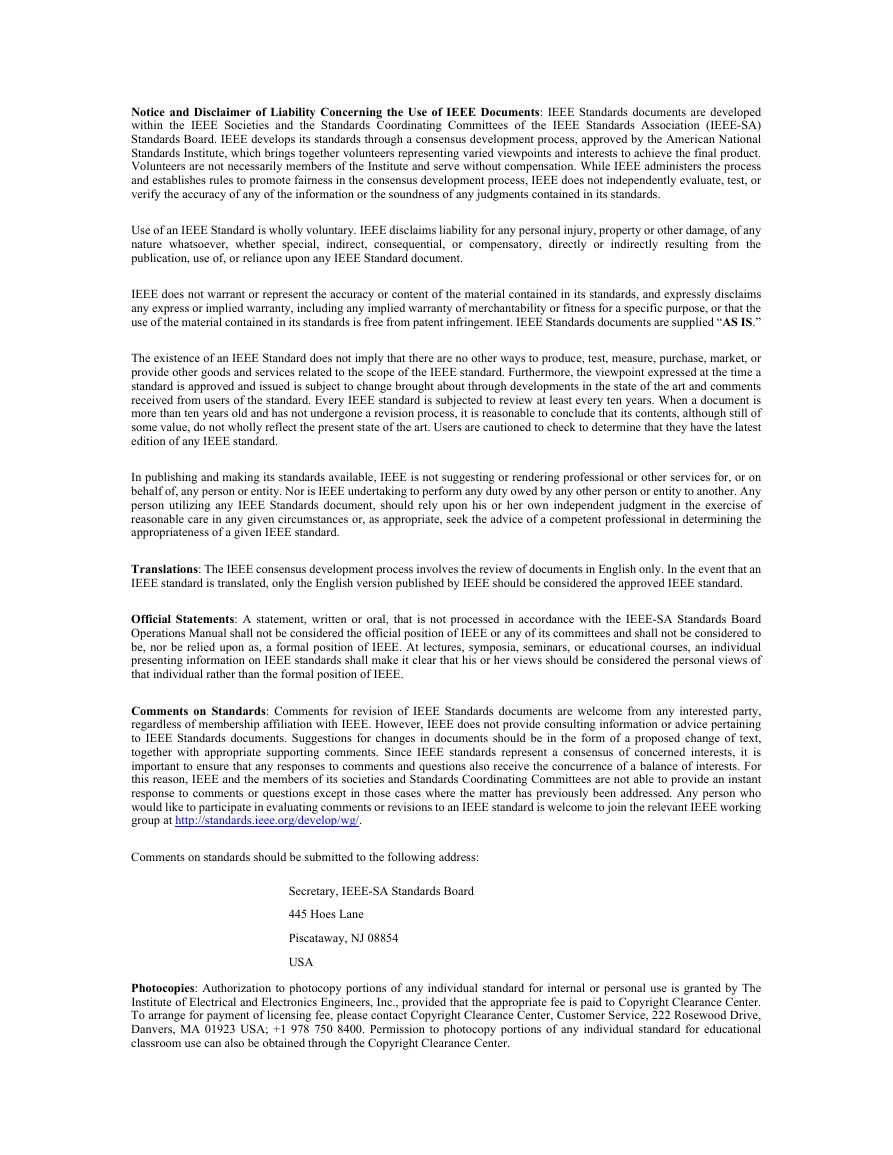

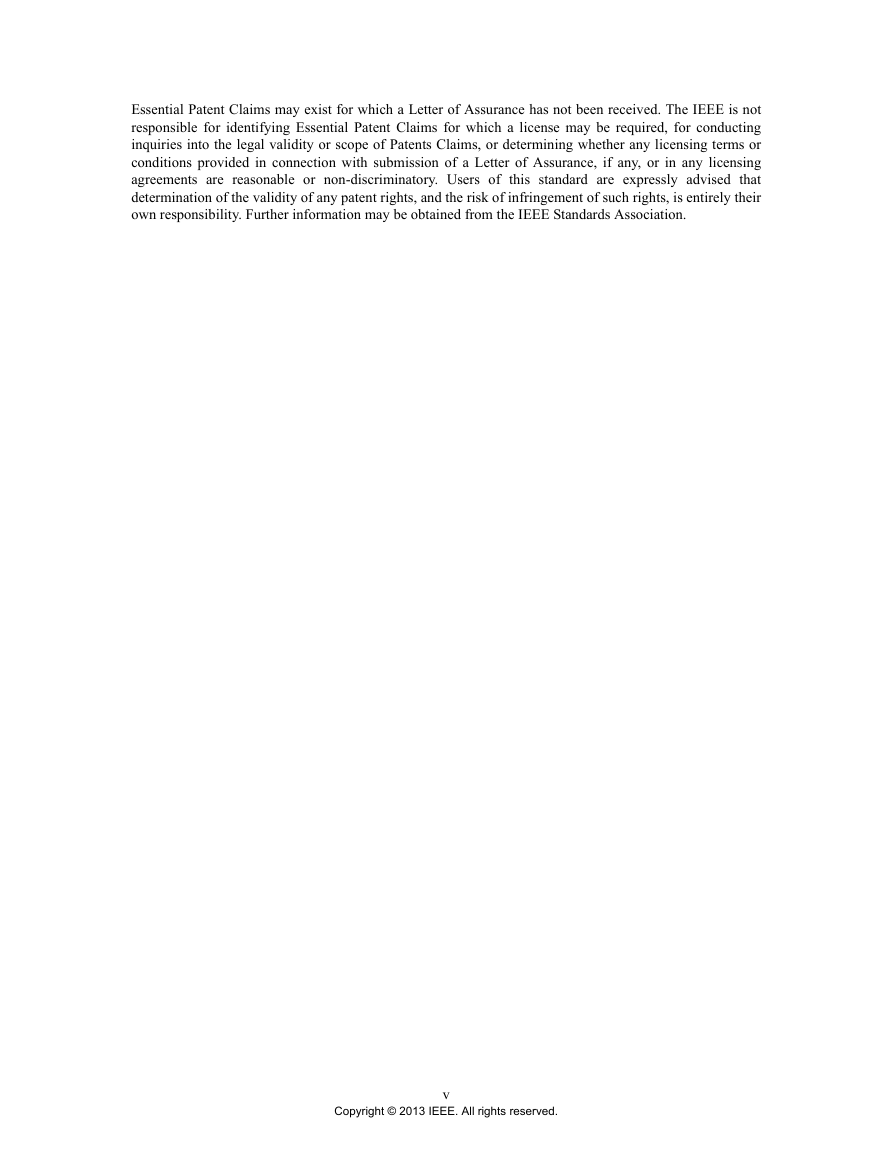
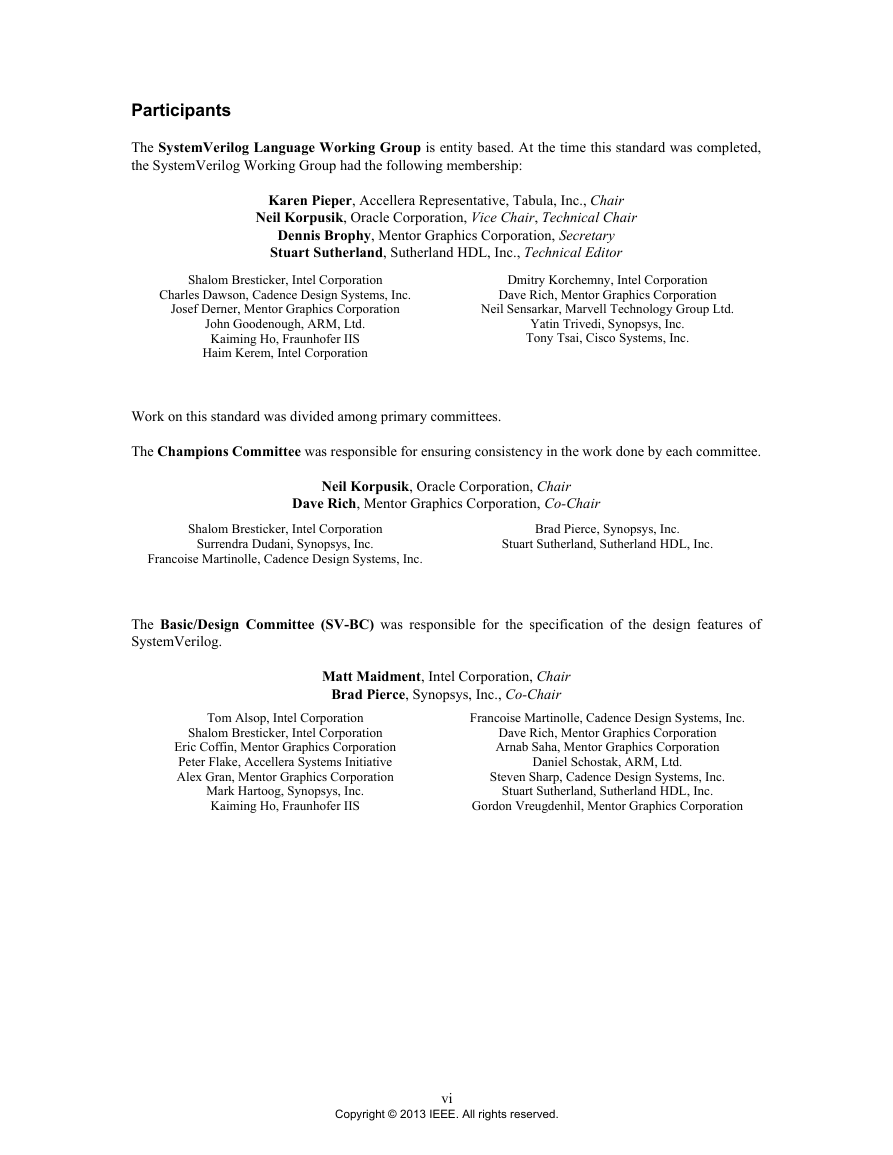








 2023年江西萍乡中考道德与法治真题及答案.doc
2023年江西萍乡中考道德与法治真题及答案.doc 2012年重庆南川中考生物真题及答案.doc
2012年重庆南川中考生物真题及答案.doc 2013年江西师范大学地理学综合及文艺理论基础考研真题.doc
2013年江西师范大学地理学综合及文艺理论基础考研真题.doc 2020年四川甘孜小升初语文真题及答案I卷.doc
2020年四川甘孜小升初语文真题及答案I卷.doc 2020年注册岩土工程师专业基础考试真题及答案.doc
2020年注册岩土工程师专业基础考试真题及答案.doc 2023-2024学年福建省厦门市九年级上学期数学月考试题及答案.doc
2023-2024学年福建省厦门市九年级上学期数学月考试题及答案.doc 2021-2022学年辽宁省沈阳市大东区九年级上学期语文期末试题及答案.doc
2021-2022学年辽宁省沈阳市大东区九年级上学期语文期末试题及答案.doc 2022-2023学年北京东城区初三第一学期物理期末试卷及答案.doc
2022-2023学年北京东城区初三第一学期物理期末试卷及答案.doc 2018上半年江西教师资格初中地理学科知识与教学能力真题及答案.doc
2018上半年江西教师资格初中地理学科知识与教学能力真题及答案.doc 2012年河北国家公务员申论考试真题及答案-省级.doc
2012年河北国家公务员申论考试真题及答案-省级.doc 2020-2021学年江苏省扬州市江都区邵樊片九年级上学期数学第一次质量检测试题及答案.doc
2020-2021学年江苏省扬州市江都区邵樊片九年级上学期数学第一次质量检测试题及答案.doc 2022下半年黑龙江教师资格证中学综合素质真题及答案.doc
2022下半年黑龙江教师资格证中学综合素质真题及答案.doc